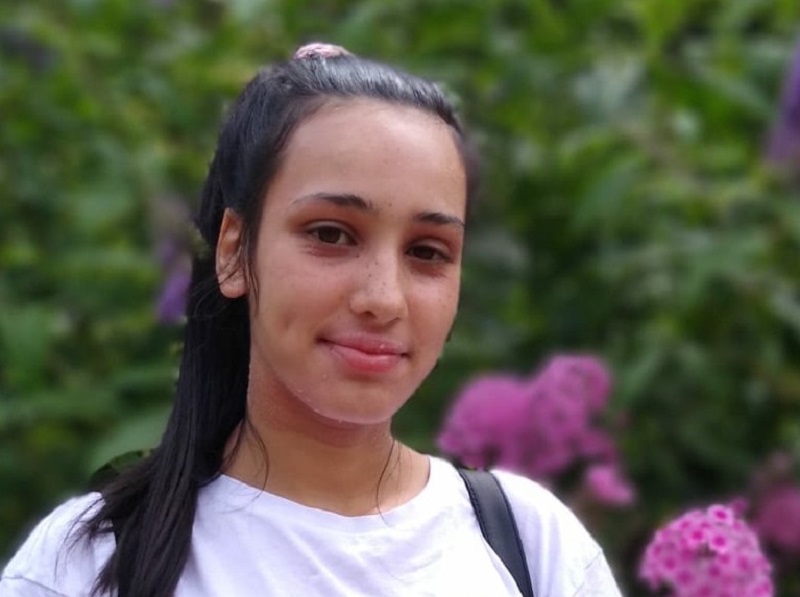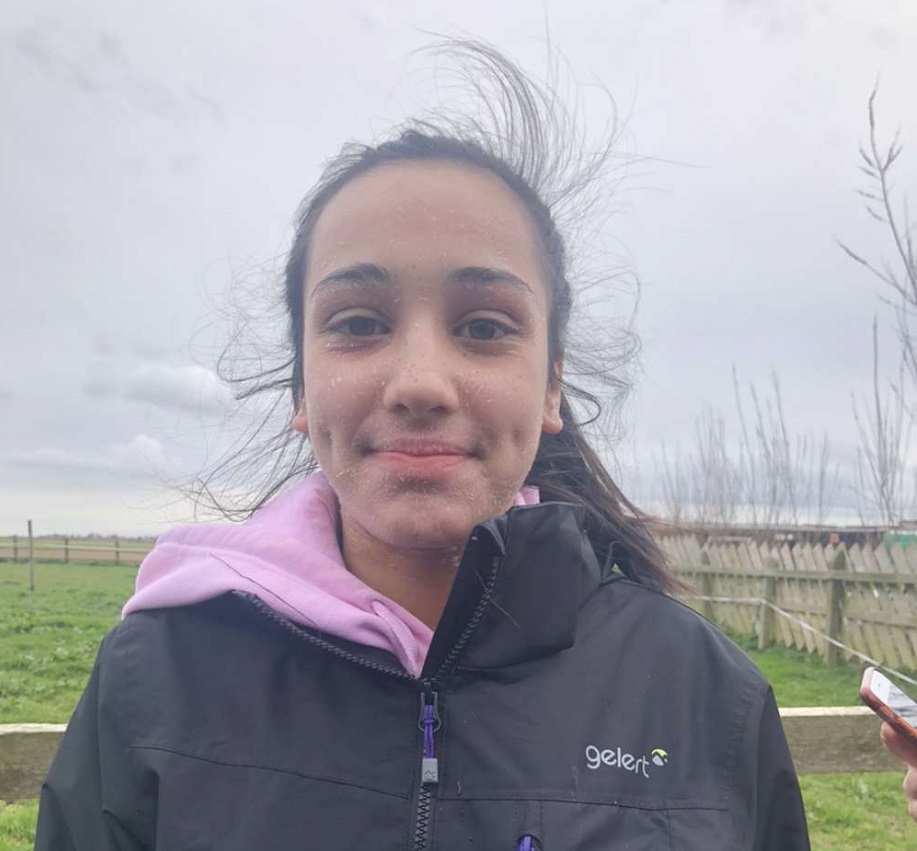I have struggled with eczema all my life. When I was younger, my parents wrapped me in bandages to stop me itching. During the early years of school, eczema on my hands would make it difficult to write as I simply couldn’t stop itching and teachers had to encourage me not to itch!
I thought I was beginning to grow out of it, but I developed a flare-up of eczema on my face when I was 15 – a place where I couldn’t cover it up. I went to several doctors’ appointments, and I used about five different moisturising creams prescribed to me, none of which worked.
I felt annoyed that nothing could help, and I felt as if I were not getting the medical advice I needed. I kept hoping it would get better and heal itself, but it was out of my control… I found it a struggle to concentrate on revising for my GCSEs whilst the skin on my face felt dry, tight, cracked, and sore.

Sabira has eczema, a condition that causes inflamed, itchy, cracked, and rough skin.
Once a 4-year-old child, who I coach football, asked what was on my face. I knew he was referring to my flaky skin, but I just replied “nothing”.
Another time one of my friends asked if I waxed my eyebrows because the skin around my eyes was red and sore. I replied, “No, it’s my eczema,” and laughed about it. To deal with these comments, I just brushed them aside, not overthinking things. None of my friends ever said anything apart from that, so I had no reason to worry, but I still felt self-conscious.
In January 2020, a specialist skin doctor who I was recommended to see about my eczema gave me two steroid ointments, which cleared my skin in three weeks. I did think to myself, “Where has this been for the past year and a half?” But I also felt so excited to see smooth skin again, which was not red or dry.
I still have dry skin on my face, especially around my neck in large patches. It still itches me, sometimes I cannot resist, but it is much more manageable, and I feel so much more confident today.
If I hadn’t been open with my friends about how it affected me, I wouldn’t be able to have such easy conversations with them now about my skin, as well as their own.
In January, a new teacher at my school shared with me a very personal experience to do with her own skin and confidence. I had never resonated with a person so much. The feeling of being understood overwhelmed me with tears. This is when my friends saw how much my skin affected me.
If I had not started to be open with my friends about how it affected me, I would not be able to have such easy conversations with them now about my skin, as well as their own. I would not have had any of the conversations I have had this year if this breakthrough hadn’t happened.
Early this year, I started a campaign with five of my friends called Our Skin Matters to highlight the importance of looking after your skin and the difficulties faced by people with visible differences.
Most importantly, we highlight the importance of sharing your experiences. Talking about what you’re feeling can really help to relieve those pent-up worries and fears.
